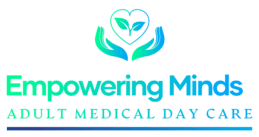Frequently Asked Qestions
FAQs
What is an Adult Medical Day Care facility?
An Adult Medical Day Care (AMDC) provides specialized care and support for adults who have chronic health conditions, disabilities, or who need rehabilitation. These facilities offer a structured, therapeutic environment during the day while allowing individuals to return home in the evenings. Services often include medical care, personal assistance, therapy, social activities, and more.
Who can benefit from Adult Medical Day Care?
Adult Medical Day Care is ideal for:
- Older adults with chronic medical conditions (e.g., diabetes, heart disease, or dementia).
- Individuals recovering from surgery, injury, or illness.
- People who need regular physical, occupational, or speech therapy.
- Those who need help with daily activities like bathing, eating, or dressing.
- Individuals who live at home but need medical supervision and socialization during the day.
What services are offered at Adult Medical Day Care?
Services may vary by facility, but typically include:
- Medical monitoring by a registered nurse or healthcare provider.
- Medication management and assistance with medication administration.
- Physical, occupational, and speech therapy.
- Personal care services such as help with eating, bathing, dressing, and mobility.
- Social activities to promote mental and emotional well-being, including exercise, arts and crafts, and recreational activities.
- Transportation to and from the facility (in some locations).
- Nutritional services, including meals and snacks, often tailored to medical needs.
What is the difference between Adult Day Care and Adult Medical Day Care?
While both types of programs provide daytime care, Adult Medical Day Care focuses on individuals with medical needs, chronic conditions, or disabilities. In contrast, Adult Day Care may focus more on socialization, companionship, and light assistance with daily activities but generally does not provide the same level of medical or therapeutic care.
How do I enroll in an Adult Medical Day Care program?
Enrollment usually involves an initial assessment by the facility to evaluate the individual’s medical needs and determine the appropriate level of care. This may include:
- A medical history review.
- A physical examination.
- A review of current medications.
- Meeting with the facility’s care team to discuss services and care plans.
- Completing necessary paperwork for insurance or financial assistance (if applicable).
What are the operating hours of Adult Medical Day Care?
Adult Medical Day Care facilities typically operate during standard weekday business hours, often from 8 AM to 5 PM, Monday through Friday. Some centers may offer extended hours or weekend care based on the needs of their clients.
Is Adult Medical Day Care covered by insurance?
Many insurance plans, including Medicaid and some Medicare Advantage plans, may cover Adult Medical Day Care services, especially if the care is deemed medically necessary. You should check with your insurance provider or the facility’s billing department for specifics about coverage, co-pays, and eligibility.
Can my family member attend if they have dementia or Alzheimer’s disease?
Yes, many Adult Medical Day Care centers specialize in caring for individuals with cognitive impairments such as Alzheimer’s disease or other forms of dementia. These centers provide specialized activities and programs to promote mental stimulation, memory retention, and emotional well-being.
Is transportation available to and from the facility?
Many Adult Medical Day Care centers offer transportation services, either through their own vehicles or by coordinating with local transportation providers. You may want to inquire about availability, costs, and service areas.
What should I bring when my family member attends?
Generally, you should bring:
- A list of medications (including dosage and schedule).
- Any personal care items (e.g., dentures, hearing aids, or glasses).
- Comfortable clothing and shoes.
- A doctor’s note (if applicable) with any specific instructions or restrictions.
- A completed intake form provided by the facility.
What happens if my loved one needs emergency care while attending the center?
Adult Medical Day Care centers are equipped to handle medical emergencies and will have trained staff on hand to provide immediate assistance. If necessary, emergency medical services (EMS) will be contacted. Families will be notified right away if an emergency occurs.
How can I be sure my loved one is receiving proper care?
Adult Medical Day Care facilities typically provide regular updates to families, including progress reports, feedback on participation in activities, and any changes in health status. Many centers also offer family meetings or calls to ensure everyone is informed and involved in care decisions.
How do I pay for Adult Medical Day Care services?
Payment options vary by facility and may include private pay, insurance (including Medicaid and Medicare), and sliding scale fees based on income. It’s important to speak with the facility’s financial coordinator to understand payment methods and whether any financial assistance is available.
Can my loved one attend just a few days a week?
Yes, most facilities offer flexible attendance options, including part-time care for a few days per week or specific hours per day, depending on the person’s needs. You can discuss the schedule and frequency with the facility to tailor the service to your loved one’s needs.
What kind of staff works at an Adult Medical Day Care?
Staff at an Adult Medical Day Care facility typically include:
- Registered nurses (RNs) and nurse practitioners.
- Certified nursing assistants (CNAs).
- Licensed physical, occupational, and speech therapists.
- Social workers and recreational therapists.
- Experienced caregivers and aides.
What should I do if I have concerns about the care my loved one is receiving?
If you have concerns, it’s important to communicate directly with the facility’s management. Most centers have a grievance procedure in place, and the staff should be receptive to addressing any issues or suggestions. Open communication ensures that concerns are handled promptly and that quality care is maintained.
